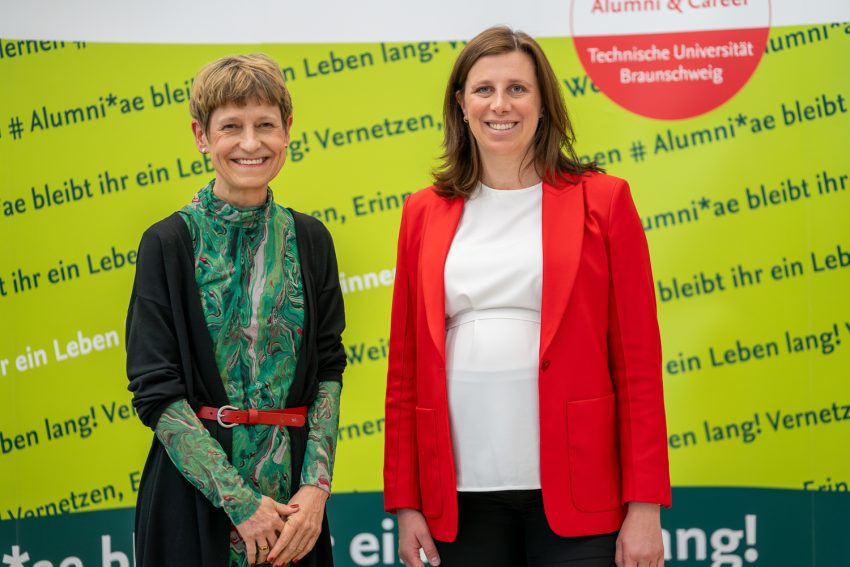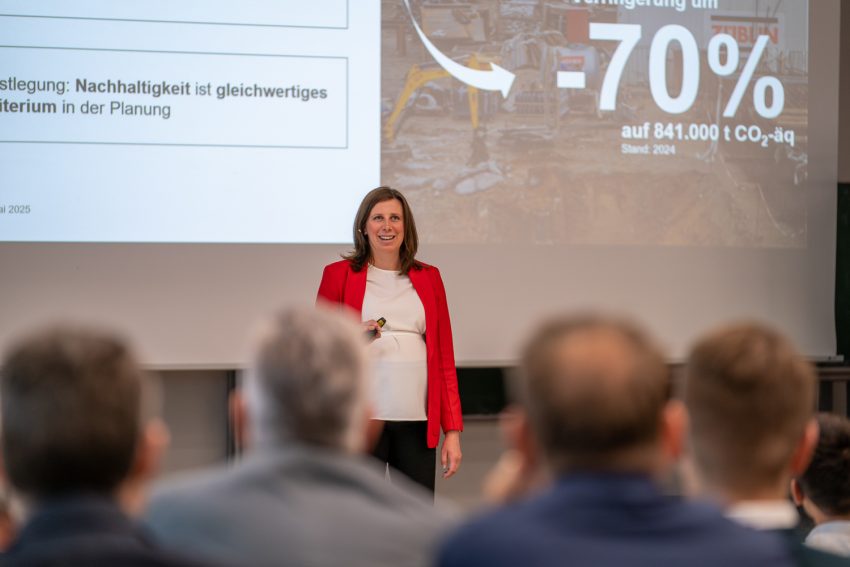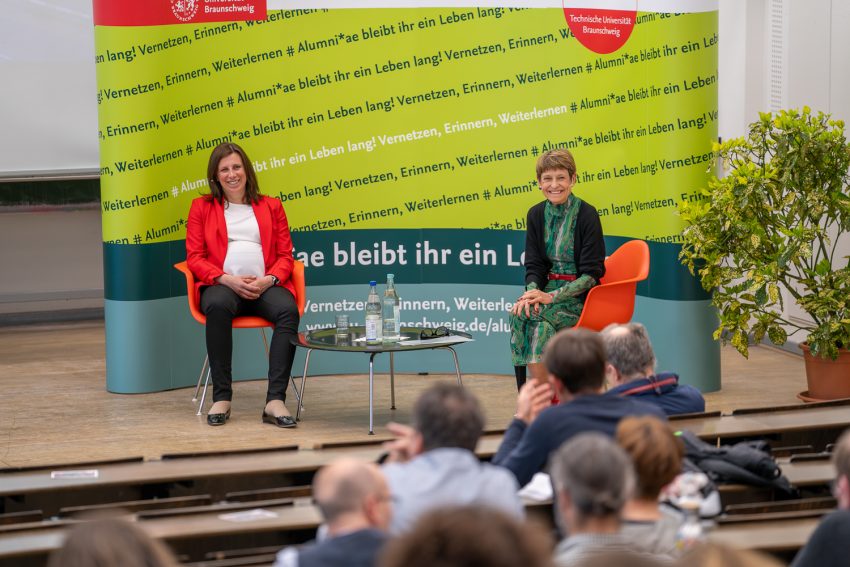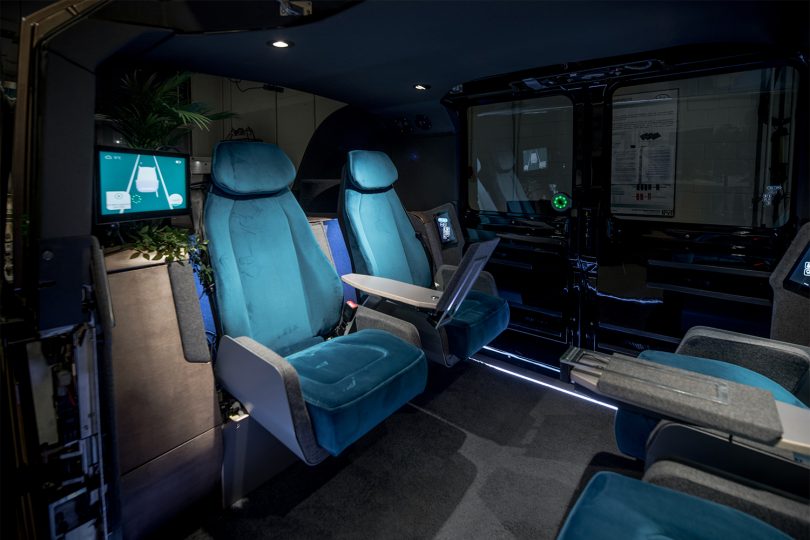When trains talk to each other "Alumni*ae in the Spotlight" with Merle Schmidt-Brunn, Chief Financial Officer and Head of Sustainability at Hamburger Hochbahn
On 8 May, a lecture hall at TU Braunschweig was transformed into a futuristic think tank. Under the motto “Alumni*ae in the Spotlight Talks”, the Executive Board and the central alumni management team at TU Braunschweig invited guests to a very special lecture. Merle Schmidt-Brunn, Chief Financial Officer and Sustainability Officer at Hamburger Hochbahn AG and TU Braunschweig alumna, reported on one of Germany’s most ambitious infrastructure projects: the construction of Hamburg’s new U5 underground line, set to be one of the most modern in Europe. She also provided exciting insights into the future of mobility.

TU President Angela Ittel with Merle Schmidt-Brunn (Hamburger Hochbahn AG). Photo credit: Ahmed Nassef/TU Braunschweig
“Hamburg wants to be climate-neutral by 2045, and we are making a significant contribution to achieving this goal,” said Merle Schmidt-Brunn, opening her presentation to nearly 100 guests from academia, government, the administration, the city council and industry. The new construction of the new U5 line plays a central role in this. With 25 kilometres of track and 22 new stations, it is a significant technical project and a milestone in ecological construction. Even during the construction phase, the CO2 footprint is set to be reduced by around 70 per cent compared to conventional methods. This is made possible by the use of special concrete and steel, among other things.
Autonomous trains every 100 seconds
A highlight of the presentation was the introduction of fully automated trains. “Our trains will communicate directly with each other,” said Schmidt-Brunn. “They will no longer require fixed timetables, as they will independently, precisely and dynamically regulate the distance between them. This will enable us to minimise cycle times and maximise the number of trains. This means more space for passengers and a stress-free experience for users. In addition, we will be even more sustainable on the road.”

On 8 May 2025, the “Alumni*ae in the Spotlight Talks” will feature Merle Schmidt-Brunn, Chief Financial and Sustainability Officer at Hamburger Hochbahn AG and alumna of TU Braunschweig. Photo credit: Ahmed Nassef/TU Braunschweig
Bus Transport 4.0: Electrification and Autonomous Pilot Projects
However, it is not only the rail network that is changing. Schmidt-Brunn announced that the HOCHBAHN bus fleet will gradually be converted to electric drives. The first bus depots with fast-charging infrastructure are already in operation. A pilot project for autonomous shuttles is set to start soon in the centre of Hamburg, so that the autonomous systems can learn to drive in as complex traffic situations as possible. This will be followed by further expansion to surrounding areas.
Looking back: studies, Gauss and the Oker
Alongside structured facts and impressive visions for the future, Schmidt-Brunn’s personal retrospective was met with great applause. Schmidt-Brunn recounted her first week studying financial and business mathematics at TU Braunschweig. Between matriculation numbers and her first lecture notes, she came up with a rhyme that she still remembers with a smile today: “Always cheerful, always relaxed, Gauss sits at his Ok(k)er.” This little piece of student humour showed that even future board members like to start their journey with a smile.
Conclusion: inspiration for a new generation
The evening ended with a lively exchange in the plenary session. For many students and alumni, the event provided professional inspiration and sent a strong message: combining theory and practice can lead to great achievements, both in tunnels and on the surface. Many thanks to Merle Schmidt-Brunn for this insight into tomorrow’s mobility and to all participants for the lively discussions.
The TU Braunschweig plans to continue the “Alumni*ae in the Spotlight” lecture series next year. By combining scientific findings and professional application, and by specifically networking different generations, the series offers an important platform for knowledge transfer, as well as for the promotion of future specialists and managers.


